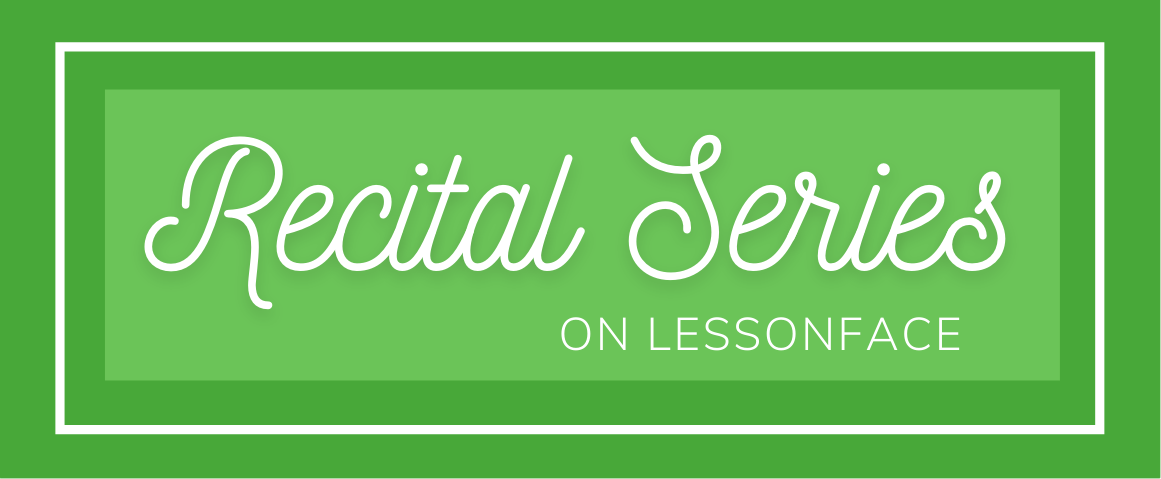If you’ve worked hard to learn a piece of music, recital program, or your part in an ensemble concert, the performance and its afterglow should feel like your reward. After all, it’s your chance to share music you love and have worked hard to make your own. Here are some tips to help you play your best and enjoy the performance:
One Week to the Day Before
1. Relax and Reduce Practice Intensity. The week before the performance, your hard work on the details is already done. Keep up your normal technique routine and playing your piece(s), but don’t over-practice. If you’re a serious music student who typically practices several hours a day, back off a bit. I like to think of this stage as like ‘tapering’ in running, swimming, and other sports. In sports, you want to approach a race (meet, match, etc.) limber and well-rested. You would never do a killer workout a few days before. Same with music.
2. Focus on Interpretation. When you’re practicing your piece(s), think about what you want to say with your music and whether it’s coming through. Record yourself to be sure that your dynamics are coming across, your tempo is consistent, and the overall mood is true to your intentions.
3. Keep Challenging Sections Fresh, but Don’t Obsess. Ideally you have chosen and prepared music that is within your playing level. Still, there may be some sections that are technically challenging. Keep isolating these sections and playing them at different tempos, with different interpretations. If you miss a difficult part in a practice run-through, don’t panic. Finish the run-through, isolate the section, and play it slowly and carefully a few times. When you’re playing the entire piece, train yourself to remember to relax and focus when those parts are approaching. Think of this like a thought bubble programed to pop up at a particular moment.
4. Think Positive. Repeat positive affirmations to help you focus on the good in this final stretch. More on these here, but to summarize they are up-beat statements in the 1st-person present that you use to crowd out any negative thoughts or doubts. For example, I went through a period when my stage nerves made it difficult to enjoy recitals. I used the phrase ‘I love sharing my music with people’ to bring out the enjoyment over the nerves.
5. Visualize Your Performance. Go over your piece mentally, beginning to end. If you’ll be performing a long recital, visualize the beginnings and ends of each piece. Practice getting into the mindset and mood for each different piece
The Day Of
1. Sleep and Eat Normally. Stick to your normal routines. Avoid eating anything that you’re not used to - nervous butterflies are worse on an unsettled stomach.
2. Warm up and Practice Lightly. You should feel loose and limber and ready to play, but again, don’t over-practice. Running through your piece(s) over and over won’t help, and may only make you more nervous if you have a bad run. It will help you more to focus on staying relaxed, thinking positively, and visualizing your performance.
During
1. Take Your Time. Once you get on stage, take a moment to breathe, relax your hands, and hear the first few bars of your piece in your mind before you start playing. Take your time between pieces, too. This lets you adjust your mindset to the mood and demands of different music, and it gives your audience’s ears a refreshing pause.
2. Let Go of Stray Thoughts. It’s normal for random thoughts creep in, especially if we’re nervous. Learn to recognize them and let them go of them rather then following them to distraction.
3. Forgive and Forget Instantly. Mistakes happen. They rarely matter if we can let them go and keep our focus on what’s next. Most of the time, listeners don’t perceive our errors, as long as we don’t let on when they happen.
4. Enjoy! If you’re having fun, it will come across in your playing. Your listeners will sense it and enjoy the music more, too.
After
1. Accept Compliments (and Criticism) Gracefully. Regardless of whether it was an amazing performance or not, when a listener compliments your playing, the correct response is always ‘thank you’. Don’t try to be humble and talk about things you could have done better -- that can be off-putting to someone who thoroughly enjoyed listening to you (and may know nothing of music or your ‘mistakes’). If anyone is brazen enough to criticize your performance immediately after, be polite and thank them for their feedback. Rude or not, they’re still your audience!
2. Relax and Be Proud of Yourself. Learning and sharing music is hard work, you deserve to let yourself enjoy the afterglow. There will be time to analyze your performance later. Immediately afterwards is not the most productive (or objective) moment for self-critique.




